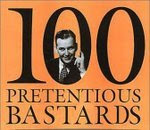A question I ask myself a lot is why? Why do people have such different points of view on the same subject? Why are they willing to side against each other, sometimes even violently, over an intangible thing such as an idea?
One of the things that sparks me a lot is religion. I'm not a religious person, but I try to be respectful of those that are while still being open about being agnostic. I know a great many intelligent, compassionate people who believe in a God who is personal and who directs the flow of the world. I am an intelligent, compassionate person who does not believe in a personal god. Why the difference?
I have a few theories. I could be very mistaken, so take them as a brainstorming session more than a statement of what I feel is right.
Belonging - People like to feel as if they matter. Church is something relatively positive to gather around. Let's face it; many things people gather around (nightclubs, parties, sporting events, concerts) are either impersonal or don't have much in the way of spiritual fulfillment. Nightclubs make me want to gag after about an hour; I love dancing, I hate the meat market aspect. As a society, we don't often get together to be around other people; they just happen to be there.
Purpose - Something I've had to confront as an agnostic is that everything that I love can be taken away for no good reason at all. Just accident, chance, stupid mistake. There's no force to keep that from happening. If you believe in a purpose for everything, then it's easier to believe that there's a meaning in it, that God wanted you to have a different job and that's why you were fired, that God took your mother home to Heaven and that's why you can't have her company here on Earth anymore. It's also damn reassuring to think you have a purpose when you're confronting the vastness of the world and wondering where you're supposed to fit. I think I've written about this before, so I'll leave it at that.
Usefulness - Tied into purpose, usefulness is the feeling of being fulfilled by what it is that you are doing. Not everyone can be famous; I suspect that most people wouldn't like it once they had it. However, there are a great many people with respect and love for those they know because they work hard for their families. God gives you a feeling of usefulness to the world. You can spread his message (or just his love) with your actions. Suddenly everything becomes a way for you to shine, from being patient at red lights to drudging through your job to come home at night and make sure your children are provided for.
These are all the positive things I've seen about religion, and I realize that the good comes with bad; people choose religion to justify their bad behavior, to feel better than other people, sometimes even to actively have enemies and feel morally just in persecuting them. (Don't think that last one is true? Try being an athiest in the South. Or gay. Or even just different.)
I'm searching for why people need God. I suspect it's for these reasons, but also because it's easier than searching out something new. Again, it doesn't make it good or bad; it just is.
Wednesday, February 10, 2010
Subscribe to:
Post Comments (Atom)


2 comments:
I would also say "Fear". It ties into the other points you make, but there is an aspect of terror that I fight with because I don't believe in a spirit that shares my life with me to comfort me, and reassures me that there is no such thing as true death. The atheist is the one who has the courage to stare into the abyss and say "I don't know what's going to happen". I find it very difficult to respect religious people because I feel their lack of intellectual courage (I won't go so far as to say cowardice).
I had a very entertaining conversation with a Mormon missionary just last night. We talked about many things, but my main point in our discussion was how contradictory it is to think of an all-knowing, all-loving God who would punish us eternally for our ignorance or mistakes. That is a far too "human" (and medieval) concept.
I think too often people confuse Faith and Knowledge.
I don't know what will happen to me in the end, but I choose to live my life that reflects faith in a greater truth.
To paraphrase Kierkegaard "Doubt is what makes faith valuable."
Post a Comment